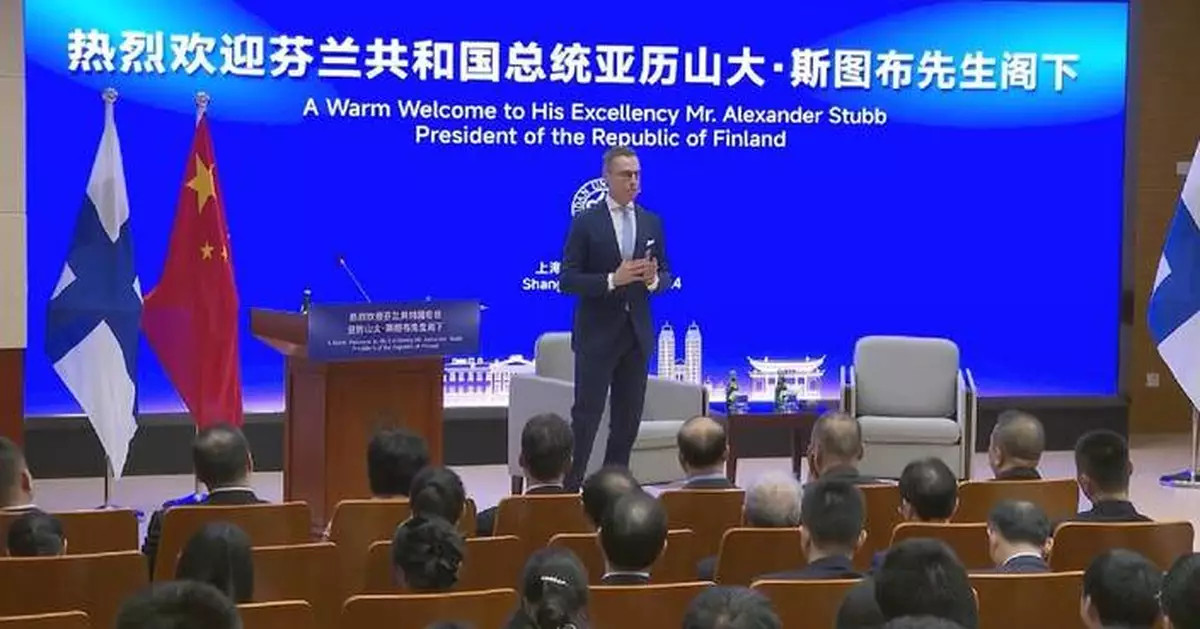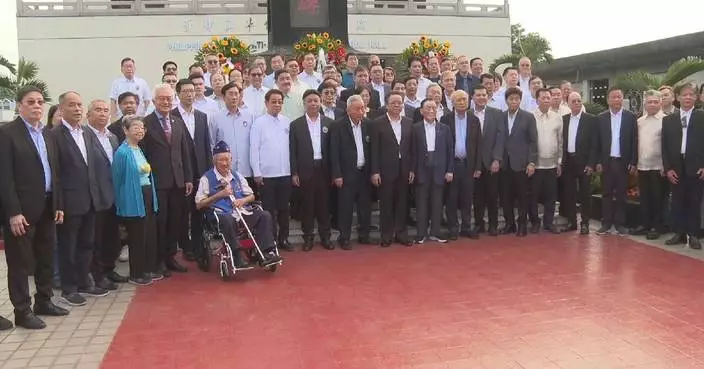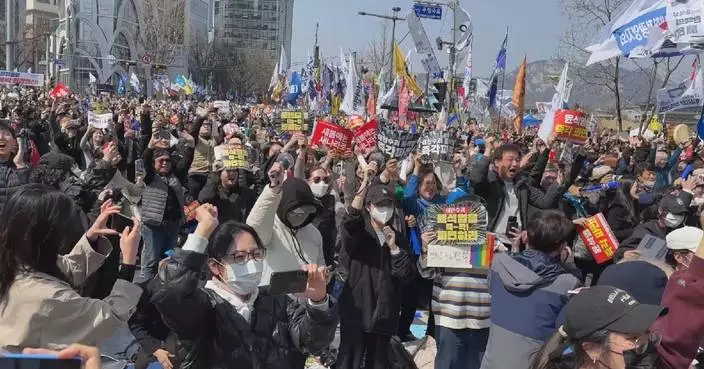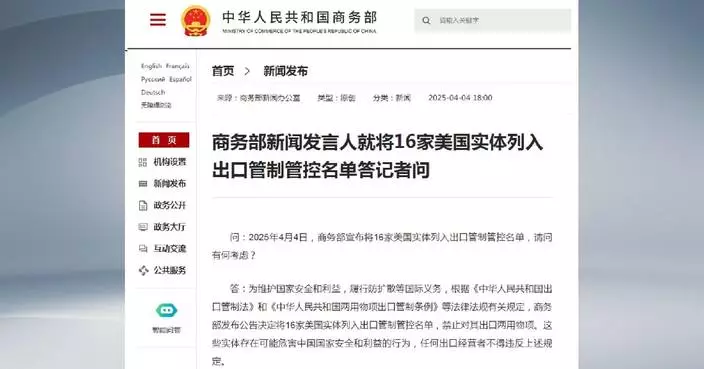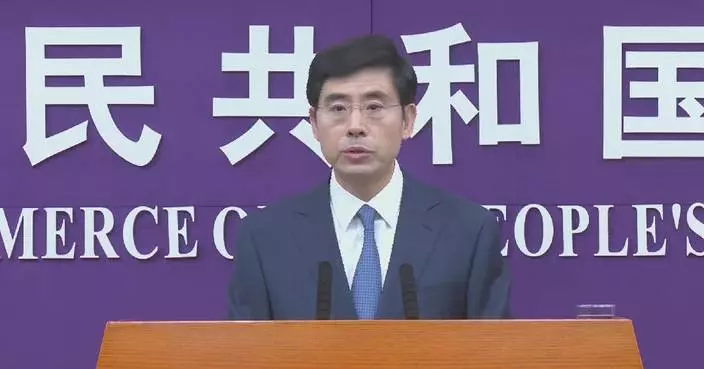Finnish President Alexander Stubb on Thursday visited Fudan University in Shanghai, where he delivered a speech stressing importance of bilateral cooperation with China.
Stubb arrived in Beijing on Monday for a four-day visit to China at the invitation of President Xi Jinping. Monday marks the 74th anniversary of the establishment of diplomatic ties between China and Finland.
During his stay in Beijing, President Xi has held talks with Stubb, and Premier Li Qiang and National People's Congress Standing Committee Chairman Zhao Leji have met with him respectively to exchange views on bilateral relations and issues of common concern.
Stubb and his delegation on Wednesday arrived in Shanghai, and on Thursday morning he visited Fudan University, where he met with faculty members, students and exchange students of Finland.
The gathering at Fudan University focused on topics like global affairs, higher education, people-to-people exchanges and other topics for the future cooperation between the two countries. And also, students were eager to participate in and share their perspectives on today's world and China, as well as ways to strengthen the ties between the two sides.
President Stubb also reflected on his college time studying international relations and shared his insights on today's world, especially on multipolarism. He believed that multipolarism is a way to foster a world of balance and stability. And also, he discussed how nations can work together to build such a framework in today's geopolitical situation.
After visiting Fudan University, President Stubb will attend a business forum with over 80 entrepreneurs from both China and Finland, alongside some high-level leaders from his business delegation this time. The panel discussions will be around topics like green energy, new energy vehicles, culture, tourism, entertainment, future investment directions, and the bilateral partnership and cooperation.
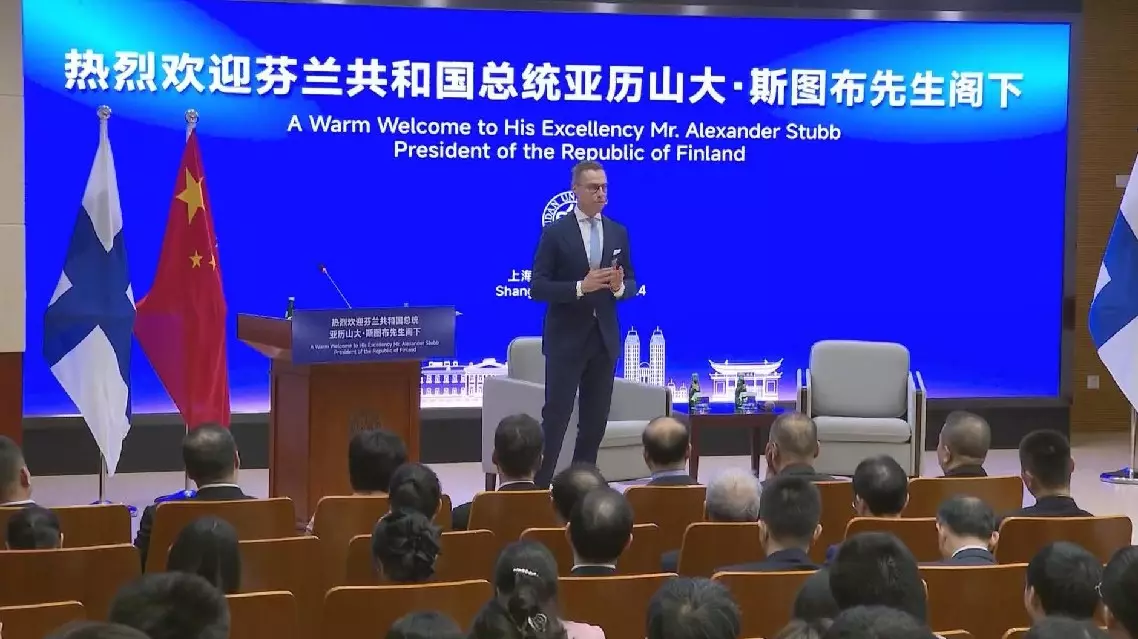
Finnish President visits Fudan University in Shanghai
China is to impose a matching 34 percent tariffs on all U.S. imports, plus export controls, and trade restrictions, in response to the U.S. move to impose a 34 percent "reciprocal tariff" on Chinese imports, a spokesperson for the Ministry of Commerce announced on Friday.
The spokesperson said that the U.S. imposition of so-called "reciprocal tariffs" seriously violates WTO rules, harms the legitimate rights and interests of the WTO members, and undermines the multilateral trade system and global economic order.
Calling it a typical act of unilateral bullying that threatens global trade stability, China has filed a complaint against the U.S. move under the WTO dispute settlement mechanism, the spokesperson said.
Meanwhile, the Customs Tariff Commission of the State Council announced on Friday that the imposition of the 34-percent tariffs on all products imported from the United States would take effect on 12:01, April 10, while the U.S. imposition is set to take effect on April 9.
Also on Friday, the Ministry of Commerce issued announcement No.18 of 2025, imposing export controls on seven types of middle-heavy rare earth elements, including samarium, gadolinium, terbium, dysprosium, lutetium, scandium, and yttrium.
The Ministry of Commerce also issued announcement No.21 of 2025, adding 16 U.S. military-related entities to the export control list, prohibiting the export of dual-use items to these entities.
The work mechanism for the unreliable entity list issued announcement No.7 of 2025, which added 11 U.S. companies on the unreliable entity list, prohibiting them from engaging in import and export activities related to China, and prohibiting them from making new investments in China.
The Ministry of Commerce issued announcements No.19 and No.20 of 2025, launching an anti-dumping investigation into imported medical CT tubes originating from the U.S. and other regions, and initiating China's first industry competitiveness investigation into imported medical CT tubes.
Also on Friday, the General Administration of Customs issued announcements No.54 and No.55, stating that in order to protect the health of Chinese consumers and ensure the safety of China's livestock production, it has decided to suspend the qualification of one U.S. company for exporting sorghum to China, suspend the qualification of three U.S. companies for exporting poultry bone meal to China, and suspend the export of poultry products to China from two U.S. companies, as their imports are found problematic in the inspection and quarantine.
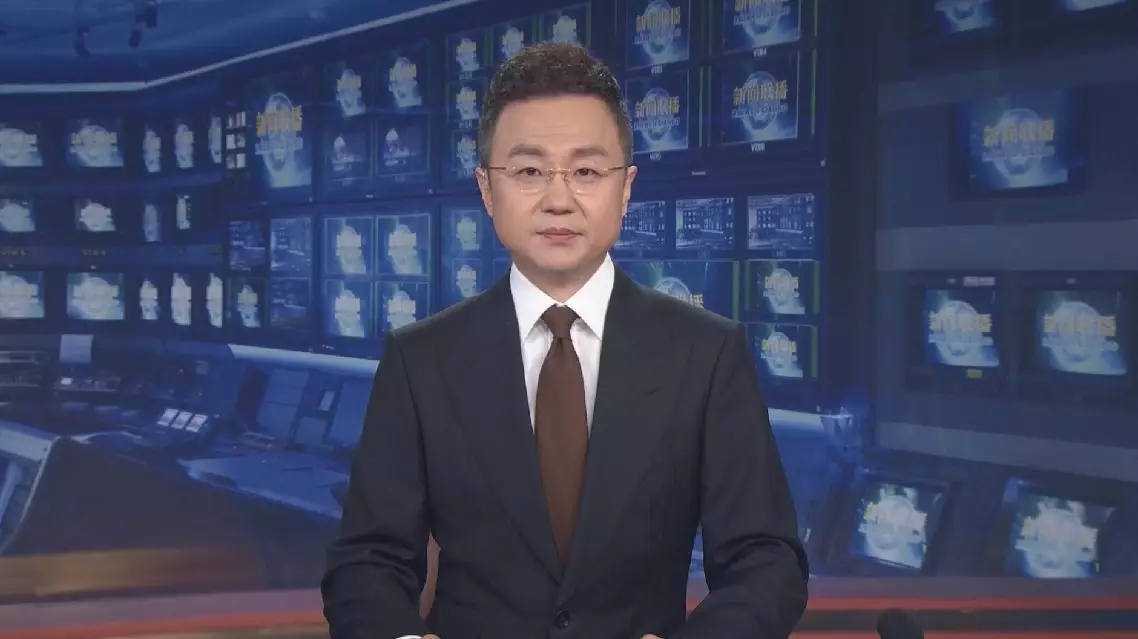
China to control export, restrict trade with US plus tariffs



